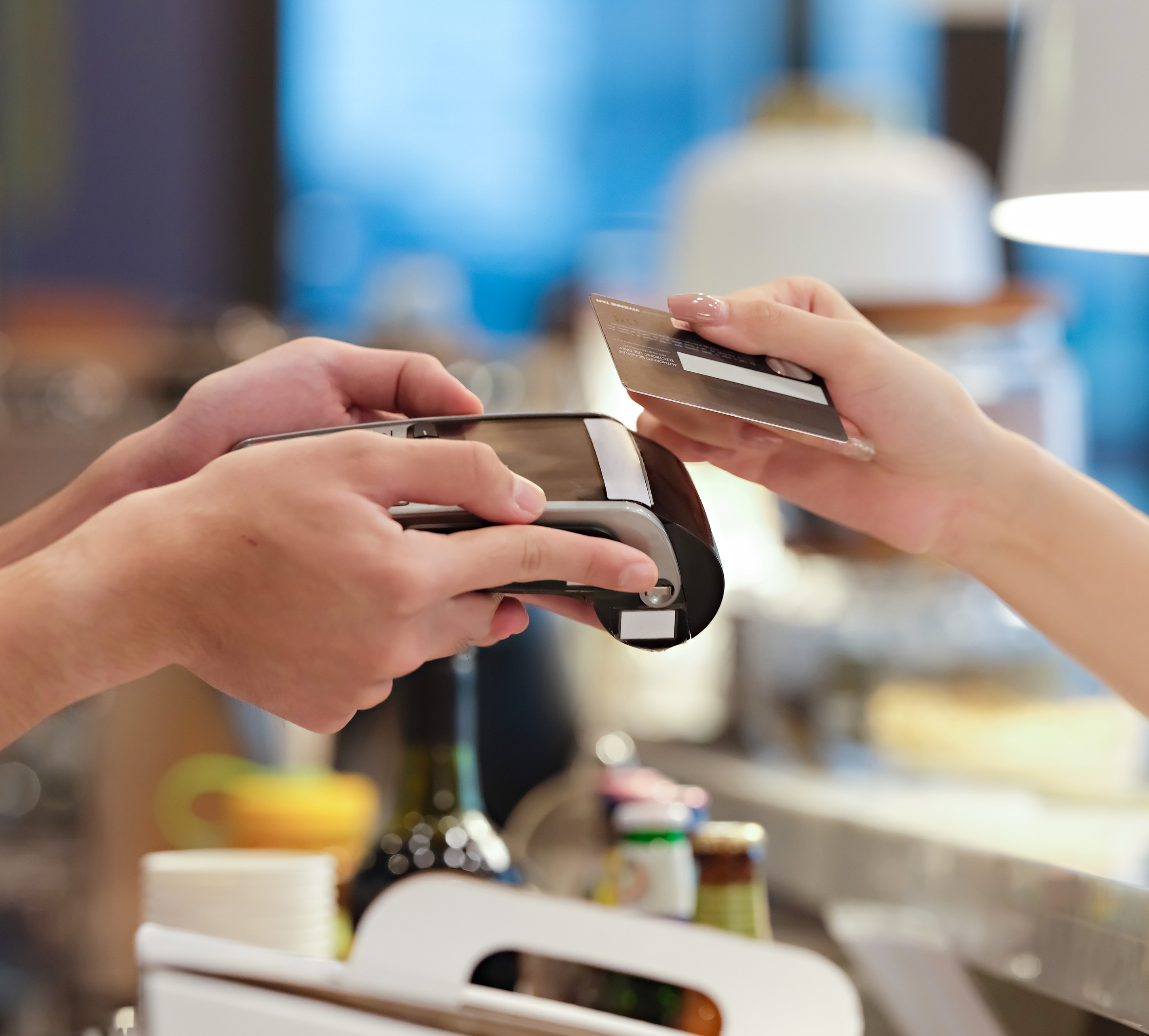
Introduction
PwC’s Retail and Consumer Insights provides the latest consumer behaviour news and trends in New Zealand and internationally. We analyse data from the PwC Retail and Consumer Dashboard (focusing on electronic spending by industry in New Zealand) to equip you with insights to inform your business decision making. Our commentary also covers our observations of key changes in the ANZ-Roy Morgan Consumer Confidence Index, Stats NZ and other local and global sources.
Key highlights from our February 2022 edition include:
Consumer confidence remains subdued with the index declining to 97.7 in January - well below the long-term (pre-COVID) historical average of 120 and the lowest level since May 2020.
Consistent with the subdued consumer confidence outlook, the proportion of respondents who believe it is a good time to buy a major household item returned to negative territory (-4.0%).
December 2021 quarter annual CPI inflation rate was 5.9% - the highest level since June 1990.
Analysis of January 2022 electronic spending suggests a modest improvement in seasonally adjusted electronic spend for the core retail categories, which increased 3.0% ($164m) relative to December 2021.
Comparisons with the equivalent (pre-COVID) levels of 2019 continue to highlight the impact of COVID restrictions on key categories with the Hospitality and Apparel categories still 6.8% and 1.5%, respectively below the equivalent 12 month period of 2019.
Based on PwC’s recently published Global M&A Trends in Consumer Markets: 2022 Outlook, deal making in the consumer markets industry is expected to flourish as more people are vaccinated and consumer spending increases.
Key categories identified as likely to be the subject of M&A activity include home and garden products, pets and vets, casual wear and athleisure, and health and beauty.

To explore further, select the buttons below.
Consumer confidence
With all of New Zealand moving to the COVID-19 Protection Framework, also known as the traffic light system, on 2 December 2021, the country entered a new phase in its ongoing management of COVID-19. From a retail perspective, the struggle has continued with all of Aotearoa entering the red traffic light on 23 January 2022 after nine COVID-19 cases infected with the Omicron variant were found in the Nelson - Marlborough region.
Against this backdrop, the January 2022 edition of the ANZ-Roy Morgan Consumer Confidence Index (released on 28 January) revealed a modest decline in consumer confidence, from 98.3 in December 2021 to 97.7 in January. This is well below the long-term (pre-COVID) historical average of 120 and the lowest level since May 2020. It is important to note that the vast majority of this survey was conducted before confirmation of Omicron in the community.
Consistent with the subdued consumer confidence outlook, the number of respondents who believe it is a good time to buy a major household item returned to negative territory with a net 4.0% of respondents now thinking it is a bad time to buy a major household item. This remains the best retail indicator in the ANZ survey, and has been negative in four of the last six months, with an average reading over that period of minus two.


"Households' budgets are under increasing pressure, with supply chain disruption and labour shortages contributing to soaring inflation. Recent changes in lending policy and the lagged effect of wage growth means that many families will be feeling the pinch."
The Auckland region’s response to whether it was a good time to buy a major household item has risen in recent months, potentially reflecting new-found freedoms after being in lockdown for over 100 consecutive days in 2021, while Wellington has declined in line with the wider national trend. As noted previously, reasons for the subdued attitude towards major household expenditure include:
heightened inflation concerns
rising interest rates
supply chain disruption
building material and labour shortages
recent changes to the Credit Contracts and Consumer Finance Act, reducing the availability of credit
ongoing COVID/Omicron uncertainty.
The subdued approach to major household expenditure is also evident across all age groups.


House price inflation expectations were unchanged at 5.3%, with a mix of rises and falls across regions. Meanwhile, annual household inflation expectations increased 0.2% from 5.6% in December 2021 to 5.8% in January. This is remarkably accurate given the Stats NZ announcement on 27 January, confirming that in the December quarter of 2021 the annual CPI inflation rate was 5.9% - the highest level since June 1990. Key contributors to this inflationary pressure included:
housing and household utilities (+7.6%)
transport costs (+15%)
food prices (+4.1%).
Spend trends
Changes in consumer spending habits can be seen in the Stats NZ electronic card transactions series data that includes all debit, credit and charge card transactions with New Zealand-based merchants. Using our Retail and Consumer Dashboard, we are able to compare YTD retail-related electronic spend data by sector with the comparable periods in 2019, 2020 and 2021.
January 2022 electronic spending (released by Stats NZ on 11 February 2022) suggests a modest improvement in seasonally adjusted electronic spend for the core retail categories, which increased 3.0% ($164m) relative to December 2021.

Within these categories the key movements in January relative to December 2021 (on a seasonally adjusted basis) were:
durables, up $54m (+3.3%)
consumables, up $44m (+1.8%)
fuel, up $15m (+2.7%)
apparel, no change from previous month
motor vehicles (excluding fuel), down $1m (-0.4%).
In terms of the actual January figures (compared to January 2021), total retail spend was up 4.3%, with the most significant movements recorded in Consumables (+9.4%), Fuel (excluding Vehicles) (+12.2%) and Durables (+5.7%) categories. The ongoing impact of COVID on the hospitality sector is readily apparent from the monthly changes in electronic spend, including the ~$600m (-47.6%) slump in August 2021 caused by the Level 4 lockdown imposed by the New Zealand Government on 17 August 2021.
YTD electronic spend by sector

Hospitality electronic spend - last 12 months

Given the various changes in COVID alert levels in and around the month of January (e.g. the removal of Auckland border restrictions on December 15 and all of New Zealand moving to the ‘red’ traffic light setting on 23 January 2022), combined with distortions caused by the ‘kiwi holiday’ period, it is perhaps more useful to consider recent spending patterns in a wider, longer term perspective, including pre-COVID. The chart below compares spending in the last 12 months (LTM) to 31 January 2022 with spending in the equivalent 12 month periods in 2021, 2020 and 2019.


Based on this analysis, the ‘winners’ and ‘laggards’ are readily apparent. Spending in:
Consumables over the last 12 months to 31 January 2022 is up +17.9%, compared to the equivalent period in 2019.
Durables over the last 12 months to 31 January 2022 is up +17.4%, compared to the equivalent period in 2019.
Hospitality over the last 12 months to 31 January 2022 is down -6.8%, compared to the equivalent period in 2019.
Apparel over the last 12 months to 31 January 2022 is down -1.5%, compared to the equivalent period in 2019.
Fuel (excluding Motor Vehicles) over the last 12 months to 31 January 2022 is down -17.3%, compared to the equivalent period in 2019 - despite the recent surge in oil prices.
A similar analysis based on the monthly progression of electronic spend by category versus the equivalent period in 2018/2019 provides similar results. However, it is interesting to note the relative increase in Apparel and Fuel (excluding Motor Vehicles) related spending in the last three months. This improvement may be attributed to increasing fuel prices and the pre-Christmas easing of COVID-related shopping restrictions in most parts of New Zealand. The immediate and ongoing impact of COVID-related restrictions on the Hospitality sector is also readily apparent.
International insights
Based on PwC’s recently published Global M&A Trends in Consumer Markets: 2022 Outlook, deal making in the consumer markets industry is expected to flourish as more people are vaccinated and consumer spending increases across a broad category of products and services. Where consumers spend their money is being influenced by lifestyle changes due to new ways of living and working. These changes in consumer preferences are expected to act as the most significant catalyst to M&A activity in 2022.
COVID-related restrictions continue to impact demand in several of the most hard-hit sub-sectors, including hospitality and leisure. But as restrictions ease, consumer confidence is expected to return, along with pent-up demand. However, in the coming months, headwinds created by new variants, slowing GDP growth in China and Europe, the ongoing conflicts in Ukraine, rising prices for many products due to inflationary pressures and ongoing supply chain disruptions may create operational challenges for some companies.

Key categories identified in the report as likely to be the subject of M&A activity include:
Home and garden products: Hybrid working is expected to create further demand for home office spaces and consumers continue to spend on home remodelling, e.g. Husqvarna Group’s announced acquisition of Orbit Irrigation Products.
Pets and vets: This reflects growing levels of pet ownership, particularly in Asia, e.g. KKR's acquisition of Natural Pet Food Group.
Casual wear and athleisure: This category has become the hottest segment of the fashion sector, attracting interest from corporate and private equity investors, as those working from home opt for comfortable clothing, e.g. General Atlantic’s acquisition of a minority stake in Gymshark.
Health and beauty: particularly online beauty retail remains attractive as M&A is used as a means to acquire complementary business models or gain a route into new geographical markets, e.g. Sephora’s acquisition of Feelunique, a UK-based online prestige beauty retailer.
In terms of key themes driving global M&A activity in the retail and consumer sector, the report identifies:
Divestitures and demergers: This follows a broader trend in portfolio reviews and shareholder pressure to unlock greater corporate value, e.g. adidas’ sale of Reebok to Authentic Brands Group.
Supply chain and logistics: Supply chain disruptions continue to impact sourcing of raw materials and transportation of finished goods to customers. As a result, some of the world’s biggest retailers, such as Ikea, Walmart, Target and Home Depot, are either acquiring their own containers or chartering ships to get high-priority goods in on time.
Online and e-commerce: Online platforms and e-commerce companies are using M&A to acquire capabilities, expand into adjacent categories and gain market share. Conscious consumerism is reshaping business models and generating interest among investors, as they seek to rebalance portfolios with more sustainability-focused companies, e.g. Lululemon’s strategic partnership with Genomatica to develop more sustainably sourced materials.

Recent news
- Ikea New Zealand has confirmed it will be opening New Zealand’s first Ikea store by signing a conditional offer to buy 3.2 hectares of Sylvia Park land from Kiwi Property Group. This store is expected to create 400 new jobs at Sylvia Park, New Zealand’s biggest shopping centre.
Bunnings New Zealand has more than doubled its annual profit, citing the increased demand for building products and DIY home improvements. Net profit for the year ended June 30 was $12m, up from $5.8m last year. Directors have said that revenues have increased across both commercial and consumer areas as well as across merchandising categories. Bunnings competitor, Mitre10, subsequently reported a 92% drop in earnings, due accounting adjustments, higher rent and costs associated with future developments.
The Black Friday sales period from November 26 to 29 2021 brought some welcome relief for retail businesses. Nationwide, spending over the Black Friday period was up 7% on 2020 figures and 11% above 2019 figures ($248.2m).
Good Spirits Hospitality (NZX: GSH), a leader in the Auckland pub market, has acquired a competitor, The Nourish Group, which owns various hospitality venues throughout New Zealand. The transaction consisted of a base purchase price of $21.3m cash with an additional $5.9m payable after 12-24 months based on an agreed earnout formula and venue outperformance. The transaction is expected to be completed in the first quarter of 2022.
Seeka Limited (NZX: SEK) has entered an amalgamation agreement to acquire leading Gisbourne packing business New Zealand Fruits Limited (NZ Fruits). The amalgamation consideration values the business at approximately $21.0m.
Michael Hill has reported record Christmas sales, despite COVID lockdowns. In the second quarter of FY2022, same store sales were up 9.6% on the previous year to AU$204.2m. This strong performance marked its tenth successive positive quarter, which CEO Daniel Bracken says is a result of strategic initiatives and the successful transformation of the Michael Hill brand which is driving both sales and margin growth.
Rua Bioscience (NZX: RUA), the Tairāwhiti-based medicinal cannabis company, has received verification that its first medical cannabis product meets the NZ Medicinal Cannabis Agency’s (Medsafe) quality standards, enabling the company to distribute its first medicine in New Zealand.
Large Warehouses are coming to Auckland in wake of supply chain issues. Supply chain disruptions have been a hallmark of the current pandemic. Disruptions to production and shipping, in conjunction with increased levels of demand for goods, have resulted in empty shelves and rising prices. Two large warehouses for food and retail goods worth more than $250m are to be built south of Auckland as supply chain strategies change to counter the significant disruptions associated with the pandemic. Sorted Logistics and Cardinal Logistics are building the facilities on a 9.8 hectare site at Drury South Crossing.
On 1 April 2022, the minimum wage will increase by $1.20 to $21.20 per hour, adding additional strain to New Zealand’s already struggling retail sector. A snap member poll by Retail NZ shows that 63% of businesses will be looking to increase prices, 47% will be looking to reduce the hours available for employees and 38% will be looking at reducing the number of people working. This increase could contribute to further inflation.
Briscoes Group: The company said in a fourth-quarter release that it now expects full-year net profit of $87m, up 20% on last year. Part of the company’s success has been attributed to securing product in advance of traditional timings and minimising the impact of widespread supply chain disruptions associated with the pandemic. Directors have also cited significant growth in online business, with growth of 21% this year.
Surging fuel prices: Kiwi motorists are beginning to feel the crunch of rising fuel prices, with 95 already exceeding $3 in parts of the country. MTA energy and environment sector manager Ian Baggott expressed that petrol companies and their staff aren’t to blame for the high prices. Baggot attributes approximately 10% of the price to the wholesaler and retailer margin, with the remainder split up between taxes (52%) and production and shipping costs (37%). This rise has been mirrored internationally. February saw international oil prices rise above $90 per barrel for the first time since 2014, with analysts anticipating a further rise to $100 per barrel before the end of the year. Global concerns over oil supply have been linked to the observed price hikes, including the conflict between Russia and Ukraine.
PwC Retail and Consumer Dashboard
The PwC Retail and Consumer Dashboard is updated monthly, to include the latest data on electronic spending, consumer sentiment and Auckland pedestrian analysis. Through our dashboard we identify and analyse trends over time, particularly in the aftermath of the COVID lockdowns. If you are interested in online access to our dashboard to help inform your decision making, please contact: Matt Gunn
How we can help:
PwC has advised many of New Zealand’s largest listed and privately owned retailers across a wide variety of projects and roles, including assurance, tax, capital solutions, transactions services, M&A, restructuring, real estate, supply chain and digital consulting services.
We have a comprehensive understanding of the rapidly evolving retail environment (offline and online) and are uniquely placed to combine strategy with technical, industry and execution expertise. We pride ourselves on a focused partnership approach to our work in the sector, based on principles of trust, independence and challenging insight, using specialist teams tailored to specific client needs.
Contact us
Contact us



Partner, Food & Fibre Leader | Finance & Operations Leader, PwC New Zealand
Tel: +64 21 404 015












